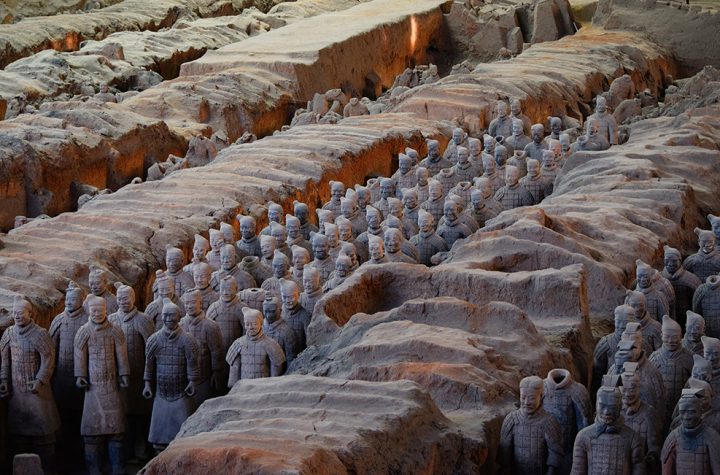
Mark J. Terrill/Associated Press
The Los Angeles Lakers have figured out what it will take to beat the Houston Rockets in their second-round playoff series: a lot of Anthony Davis.
Because of Houston’s unconventional, super-small formula that features 6’5″ P.J. Tucker at center, this series has doubled as a battle for the soul of the NBA center. And after Tucker locked up Davis in the Rockets’ blowout win in Game 1 on Friday, it appeared as though Houston’s experiment might work. Davis scored 25 points in that game but was unable to keep up with Tucker or assert his will offensively.
On Sunday, in a series-tying 117-109 Lakers win, Davis was the force of nature he can be and will need to be every night for this team, which is deeply flawed outside of himself and LeBron James, to reach its championship ceiling.
His box-score numbers jump off the page. He finished with 34 points, 10 rebounds and four assists on 15-of-24 shooting. But it was the way he got his points that made the difference.
This time around, Davis returned to his roots, overpowering the smaller, speedier Rockets in the paint. He took just one three-pointer, well below his season average of 3.5 attempts per game.
“I’m trying to stay as close to the basket as possible,” Davis said after the game in his virtual media availability.
Mark J. Terrill/Associated Press
Lakers head coach Frank Vogel kept his usual starting lineup with Davis at power forward and JaVale McGee at center, but it turned out to be misdirection. Davis spent much of the game playing center to counter Houston’s smaller lineup. Even after McGee left the game with an ankle injury, Davis remained the only big on the floor with Dwight Howard out of the rotation entirely.
Keeping him alongside James and surrounding them with guards Rajon Rondo and Alex Caruso and forward Kyle Kuzma allowed Davis to operate unbothered in the paint on both ends of the floor. The Lakers’ starting lineup was a minus-8 Sunday night, while the most-used Davis-at-center lineup of him, James, Kentavious Caldwell-Pope, Rajon Rondo and Danny Green was a plus-7.
“He’s obviously in my mind the Defensive Player of the Year,” Vogel said. “No disrespect to Giannis [Antetokounmpo]. He just covers so much ground.”
The Lakers led by 16 points at halftime, but the Rockets opened the third quarter on a 14-0 run as the three-pointers they missed in the first half began dropping. Vogel’s reinsertion of Rondo and Caruso into the lineup stabilized the defense, but everything began and ended with Davis on Sunday.
“They’re a great three-point-shooting team,” Davis said. “They’re going to shoot a lot of threes, and they’re going to make some. Our job is to get it out of the rim and push. … They were able to run us off the three-point line. We didn’t settle for threes. We were able to get some easy looks at the rim.”
Davis is arguably the most talented player with whom James has ever played, and the two together are able to paper over so many of the Lakers’ shortcomings regardless of whether Kuzma and Caldwell-Pope are hitting shots and how effective McGee and Howard are night-to-night. But Davis’ aggression has come and gone.
Mark J. Terrill/Associated Press
On Sunday, the Lakers got the version for which they traded, the one who can make or break their title chances.
“The way we need to play against this team, if we’re going to double the way we did, you need to have guys who can scramble and guard on the perimeter and have mobility,” Vogel said. “If you have smaller guys around him, he can cover more ground.”
Davis at center isn’t going to be the Lakers’ catch-all solution as the playoffs progress. In other matchups, especially if they reach the Finals and face the bigger Toronto Raptors or Miami Heat, playing McGee and Howard makes sense. With James, Davis and McGee on the floor this year, they’ve outscored opponents by 5.9 points per 100 possessions in the regular season and 21.6 in the playoffs.
But against this Rockets team, which has found an effective wrecking ball inside in Tucker but still lives and dies by the three, Los Angeles’ best bet may be to continue playing Davis at center and letting him go to work at the basket. Vogel insists the Lakers’ centers will still have a place in this series, but at least for now, his team appears to have found a formula for overpowering the Rockets’ speed.
That formula includes one eyebrow and a lot of room to dominate inside. That’s what James and the Lakers as a whole will need the rest of the way.
Sean Highkin covers the NBA for Bleacher Report. He is a graduate of the University of Oregon and lives in Portland. His work has been honored by the Pro Basketball Writers Association. Follow him on Twitter, Instagram and in the B/R App.




More Stories
Justice Rajiv Shakdher also asked the media houses AGR Outlier Media Pvt Ltd. and Bennett Coleman and Company Ltd. to ensure that no defamatory content is uploaded on social media platforms or displayed on their channels.
Two people have become the first passengers on a Hyperloop, a technology considered to be the future of high-speed ground transport.